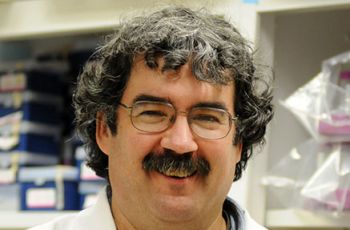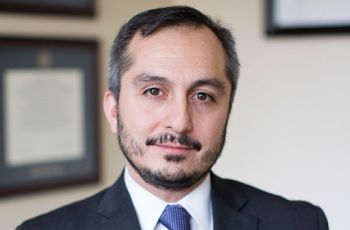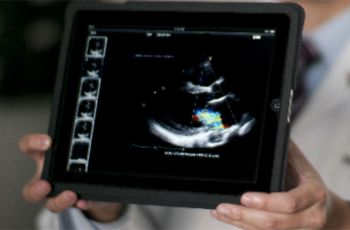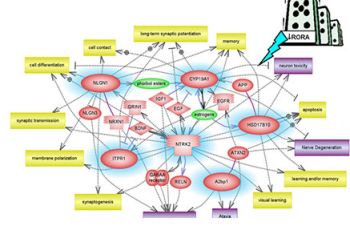Press Releases
Matthew Colonnese, Ph.D., assistant professor of pharmacology and physiology at the George Washington University School of Medicine and Health Sciences, was awarded a $1,973,645 grant from the National Eye Institute to study developmental origins of wakefulness in the cerebral cortex, the region of…
The George Washington University Cancer Institute has been awarded a $2.1 million cooperative agreement to work with the Centers for Disease Control and Prevention (CDC) to design and implement a comprehensive technical assistance plan to support CDC-funded Comprehensive Cancer Control programs.
Richard Katz, M.D., Bloedorn Professor of Cardiology, professor of medicine, and director of the division of cardiology at the George Washington University School of Medicine and Health Sciences, has been awarded $1.9 million by the Patient-Centered Outcomes Research Institute for a three-year…
John Hawdon, Ph.D., associate professor of microbiology, immunology, and tropical medicine, has received a $407,233 grant from the National Institute of Allergy and Infectious Diseases to develop techniques to manipulate hookworm DNA.
Chiara Manzini, Ph.D., assistant professor of pharmacology and physiology, was awarded a $747,000 federal grant to research the causes of severe intellectual disability and autism.
Amir Afkhami, M.D., Ph.D., assistant professor of psychiatry and behavioral sciences and global health, has been named as a 2013–2014 Robert Wood Johnson Foundation Health Policy Fellow.
The GW School of Medicine and Health Sciences is pleased to announce the establishment of the Office of Clinical Practice Innovation.
A new study by Valerie Hu, Ph.D., professor of biochemistry and molecular medicine, reports that RORA, a novel candidate gene for autism discovered by her group in a 2010 study, regulates a large number of other genes associated with autism.
A recently published paper by the George Washington University Cancer Institute addresses the value of patient navigation programs for community cancer centers.
Researcher Michael S. Irwig, M.D., F.A.C.E., assistant professor of medicine, found that men who used the medication finasteride (Propecia) and developed persistent sexual side effects, are also drinking less alcohol than before.








